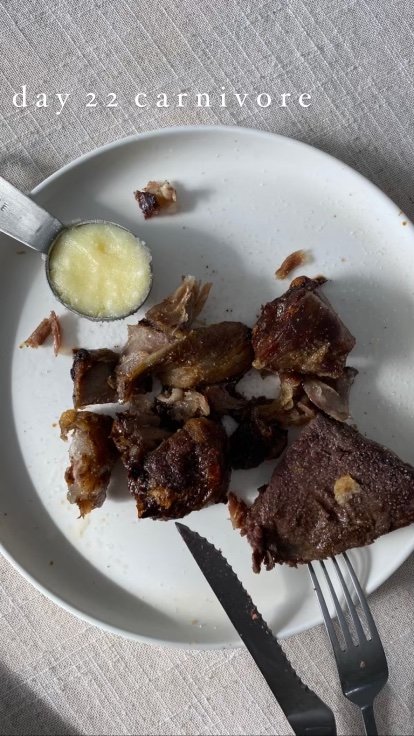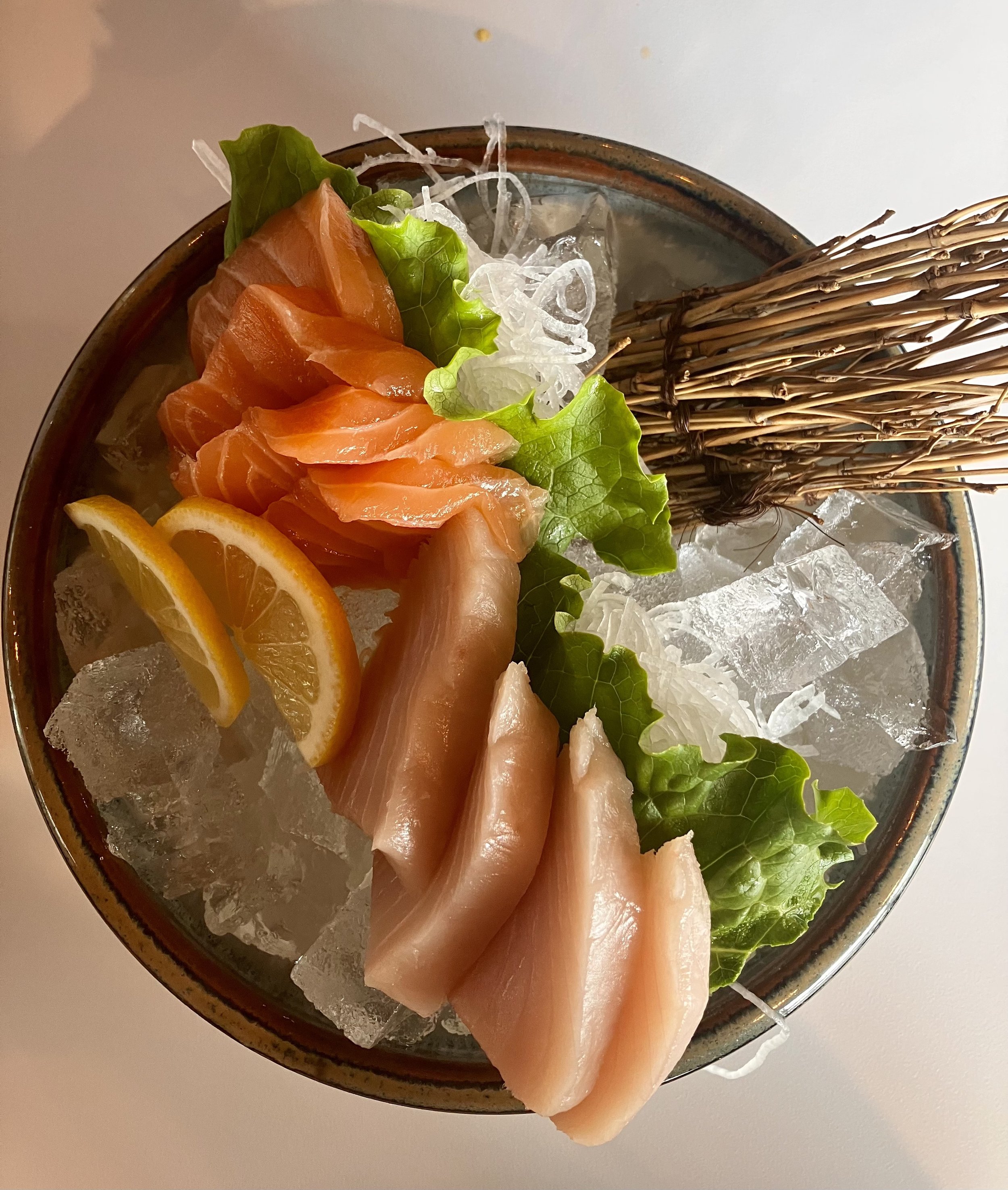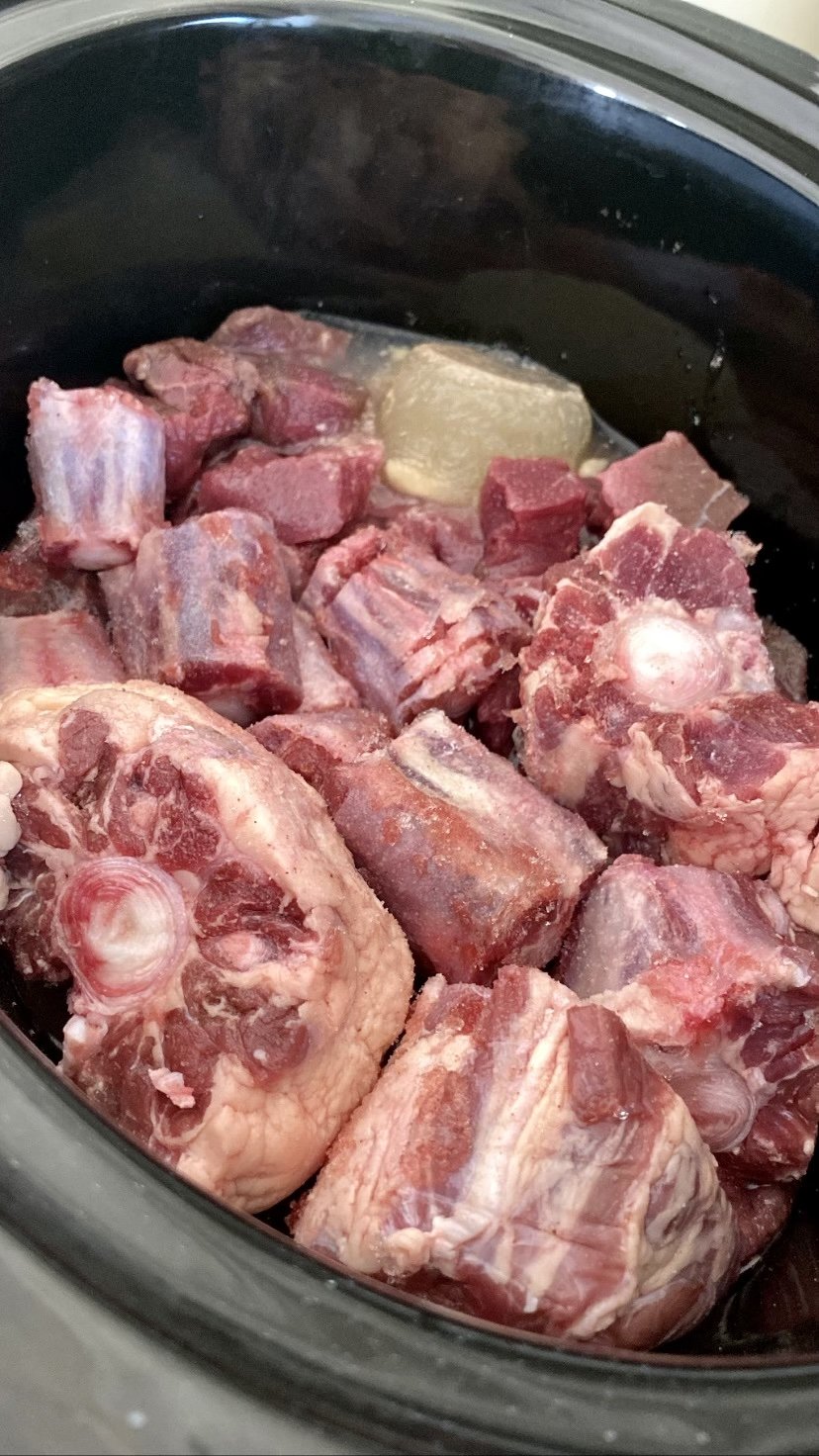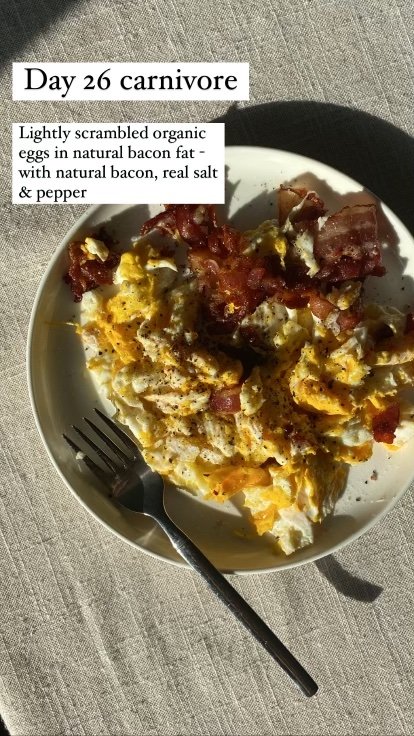I Went Carnivore for 4 Weeks!
Let me start this post by saying, I’m not going to get into the nitty gritty details and science of the Carnivore Diet right now. I will share why I did it, my experience, my thoughts after completing my 4-week Carnivore Challenge and how I’m transitioning off of it. There were a lot of great benefits I experienced, but there were definitely some challenges also!
Why I Did Carnivore
First and foremost, it’s so important to keep a clear reason for doing any type of dietary change in mind in order to succeed and not give up after a week. I’ve been on my own healing journey since 2014, recovering from a variety of severe chronic health issues, including chronic fatigue syndrome, fibromyalgia, IBS, mold illness, multiple chemical sensitivites, chronic infections like Lyme, parasites, candida and SIBO, as well as other issues. I’ve come a LONG way, but I’m still on my healing journey and getting back to full health.
I did Carnivore to see how it would help support my gut healing, reduce bloating, pain, joint pain, increase my mobility and reduce overall inflammation and hypersensitivity. Additionally to see how it could improve cognitive function, energy levels, sleep and cystic acne. Although many do, I was not doing this diet for weight loss, I’m actually hoping to gain a bit of weight.
Carnivore Diet Variations
There are different versions of carnivore. The most strict version is the “Lion Diet” which only allows for red meat (ruminant meats), salt and water. Then there is Standard Carnivore, which includes all animal meats, including chicken, fish, lamb, beef, etc., all animal fats, high-fat dairy products, all spices, teas and coffee. Lastly, there’s Keto/Carnivore or Carnivoreish. This version is more like a ketogenic diet, where it includes some low-carb/keto-friendly vegetables and fruits, such as avocado and olives, while being a primarily animal-based diet.
What about fibre?!
Fibre is SUPER important for gut health, I’m not denying this fact at all! BUT, for some people, where they are in their healing journey, more isn’t always better. Currently I’m in that camp and I know that overtime I will be able to (and have significantly over the years been able to) introduce more fibre as I continue to heal.
My Standard Carnivore Diet
I followed a variation of the Standard Carnivore Diet with the exception of coffee/teas, dairy and spices. I omitted these foods as I’m not a big fan of dairy products to begin with, coffee gives me bad anxiety and stresses my adrenals too much. I also know I react to some spices, so I decided to omit these for the first 2 weeks then slowly reintroduce some.
What I Ate During My 30-Day Challenge
As I said, for the first 2 weeks, I didn’t eat spices, so my diet consisted of mainly of meat, non-dairy animal fats and loads of Redmond Real Salt (This is really important when going very low carb). I ate primarily grass-fed and grass-finished beef, organic chicken, wild alaskan salmon, some grass-fed lamb, a lot of organic free-roaming eggs, a little bit of shrimp (not much), some natural bacon and occasional chicken liver. (I tried on the organ meats, but kind of gave up…).
I also drank a lot of bone broth for added salt, minerals, protein and gut-healing nutrients!
I introduced spices over time, but I still haven’t brought them all back. I’m waiting on nightshades — peppers, potatoes, tomatoes, garlic and a few others. (Actually, update, I had garlic this weekend and still my gut didn’t tolerate it well sadly). I also introduced avocado in small amounts for a few days, as I had some cravings with my cycle and felt I needed something for my sanity. I also brough in healthy avocado mayo, avocado again and olives the last 2 days or so of the challenge.
The Pros:
my breath didn’t stink AT ALL! (bad breathe points to bad gut bacteria & slow motility by the way)
increased mobility and flexibility (this is a BIG one for me!)
decreased joint/muscle pain
decreased bloating (I’d say just over half the time)
MY SKIN IMPROVED! Less acne, redness and it looked brighter and healthier
improved sleep, but only for the first week, then it went back to “normal”
NO MORE CHOCOLATE CRAVINGS! (I literally used to eat chocolate everyday — not that a good quality naturally-sweetened dark chocolate is bad or anything 😉)
very minimal sugar cravings! (other than occassional fruit)
decreased body odour
I had no real detox period when starting, which I was quite surprised by
improved immunity!
The Cons:
some cravings around my period for fruit and sweet potatoes - these were a challenging few days
I got food poisoning or some kind of stomach bug, which really threw me off for a week
some weight loss, not a concerning amount, but I imagine I will gain it back once I reintroduce carbs
I found it difficult to eat enough fat and calories many days (I just needed to focus on really fatty meats)
constipation (tips below for this!)
very loose stool for a few days (this is common in the first week or two as your microbiome shifts)
gassy!
I didn’t struggle socially, as I don’t tend to eat out much, but this could be a con
My Tips If Going Carnivore
Get the highest quality meat you can afford.
Grass-fed, grass-finished, organic beef is going to be the most anti-inflammatory, have the healthiest omega 3:6 ratios and be free of hormones, antibiotics and other drugs that are pumped into conventional cows.
Have a good variety of meat.
Eating eggs and beef the entire time would be extremely difficult! I found it easier when I added a variety of different kinds of meat and wild salmon to make things more interesting. Also, look into getting meat from a reputable farm for quality and price.
Choose the fattiest cuts of meat
Choosing fatty cuts of meat was really key for me, as a girl can only eat so much beef tallow!! (which eventually became a little repulsive 😝). Chicken wings became my new best friend and eating fatty beef short ribs literally gave me LIFE. Just do your best to make these fatty meats grass-fed, otherwise the omega ratios won’t be in a healthy range and the meat will be inflammatory.
DON’T SKIMP ON THE SALT (& choose a high quality salt)
I exlusively ate Redmond Real Salt because they have a very pure himalayan salt that’s tested for microplastic contamination. (This is not endorsed at all). Table salt has added sugar and I don’t recommend iodized salt. Salt is extremely important when going low carb to keep your sodium and mineral content high, as your body will flush out more of these nutrients when dropping your carbs.
Don’t fast right away.
Get used to eating meat and fat first and getting enough calories in (particularly from fat) before you consider fasting. Unless you already fast, then you may not mind continuing. I personally didn’t fast longer than 15 hours, but usually no more than 14 hours, as it’s too stressful on my system.
Do strategic reintroductions.
There’s a right way and a wrong way to reintroduce foods, so take the opportunity to do things properly. If you’re not sure how to do it in order to test for food sensitivities, this is something I teach my clients also. Don’t blow such an intense elimination diet and binge on everything afterwards
Supplements I HIGHLY Recommend When Going Carnivore
Support your elimination with a high quality magnesium
I recommend using a magnesium glycinate chelate to support regularity because you WILL get constipated. It’s a given when lowering your fibre intake significantly.
You can find the highly absorbable magnesium I recommend in my Digestion Protocol in FullScript here.
Consider Digestive Enzymes with HCl
One thing that would also be very beneficial is a good quality digestive enzyme with HCl to support your body’s ability to digest all that meat and fat. FYI, you don’t want to use HCl if you have gastritis or an ulcer though.
Find my favourite digestive enzyme/betaine HCl combo in my Digestion Protocol here.
Hydrate like your life depends on it. (with salt & electrolytes!)
Good hydration levels are key for mitigating constipation and keeping headaches and dizziness away. The key is to also add salt or electrolytes. (Find the best LMNT electrolytes using my link here to get a free bonus box!)
How I’m Transitioning Off Of Carnivore
As I mentioned above, it’s important to slowly reintroduce foods. Ideally, the best option is to slowly bring in one food at a time and test any reactions over a period of 3-5 days - whether physical or mental/emotional. I haven’t done this exactly right I will say, but I’m still trying to go very slow. I’m also going to slowly ramp up my fibre and test different types of fibre overtime.
I will be transitioning into more of a “Carnivoreish/Keto-style” diet for a period of time, although I’m not sure how long this will be for (maybe a week, maybe a month!). I just want to ensure I don’t create issues with my gut by bringing in too much fibre or any potentially inflammatory foods into my system at once. There are certain foods I generally don’t eat that I don’t plan on bringing back, such as gluten, grains, dairy, corn, etc.
While I’m not doing a clinical ketogenic diet the way I’d guide my clients in (tracking, testing ketones and glucose), I am choosing more “keto-friendly” foods. Essentially these are foods that are still low carb, high-fat. A true ketogenic diet is a very high fat, MODERATE protein, low carb diet. I’m still going to be keeping my protein higher and eating plenty of healthy fats, while slowly introducing more complex carbs.
Foods I’m beginning to introduce:
clean, whole, high-fat foods (olives, avocados, olive oil, MCT oil, coconut oil, coconut, full-fat coconut milk)
Whole, low-sugar veggies (arugula and other leafy greens, low-carb veggies)
Whole, low-sugar fruits (olives, avocado, raspberries, blueberries, strawberries, etc.)
I’m also considering using a continuous glucose monitor as I reintroduce foods to test for any hidden foods that could be affecting my blood sugar. (I’m not diabetic by the way, but blood sugar is a key marker of metabolic health).
Final Thoughts
Would I do it again?
Yes, probably. But likely not for a full 30 days. It was definitely challenging at times, as I ran into some unexpected issues. I think it was a really great gut reset, which is how I was treating it. I feel like I would need to go much longer to make significant changes in my health, but I’m not sure I’d feel confident in that as a longer-term healthy option.
Would I recommend it to clients?
It’s definitely possible, depending on the client. I believe that each person needs to be treated uniquely and that there’s no-size-fits-all approach when it comes to nutrition, gut healing or recovering from adrenal fatigue or other health issues.
The answer to your gut issues?
I certainly DON’T think carnivore or any elimination diet is the “answer” or “cure-all” for chronic gut issues though. It’s very important to me that gut-healing plans for my clients are tailored to them. Often using comprehensive digestive testing with GI-MAP to narrow down issues and craft personalized dietary and supplement protocols.
Cautions
I would certainly caution someone doing this long-term. I don’t think it would necessarily be a healthy option, as it would deplete healthy gut bacteria overtime due to the lack of fibre. I think there are also concerns if someone has very low levels of good bacteria, that it could have the potential to throw things off further. And those with certain medical conditions where complely removing carbs or eating a high protein diet would be problematic.
But overall, I’m very happy I did this diet and was pleased with the results! And I’m excited to ease into eating more foods again with a new appreciate for real, whole foods!!!
Have you ever done carnivore? I’d love to hear about your experience in the comments below!
Here’s to healing together,
Asher










